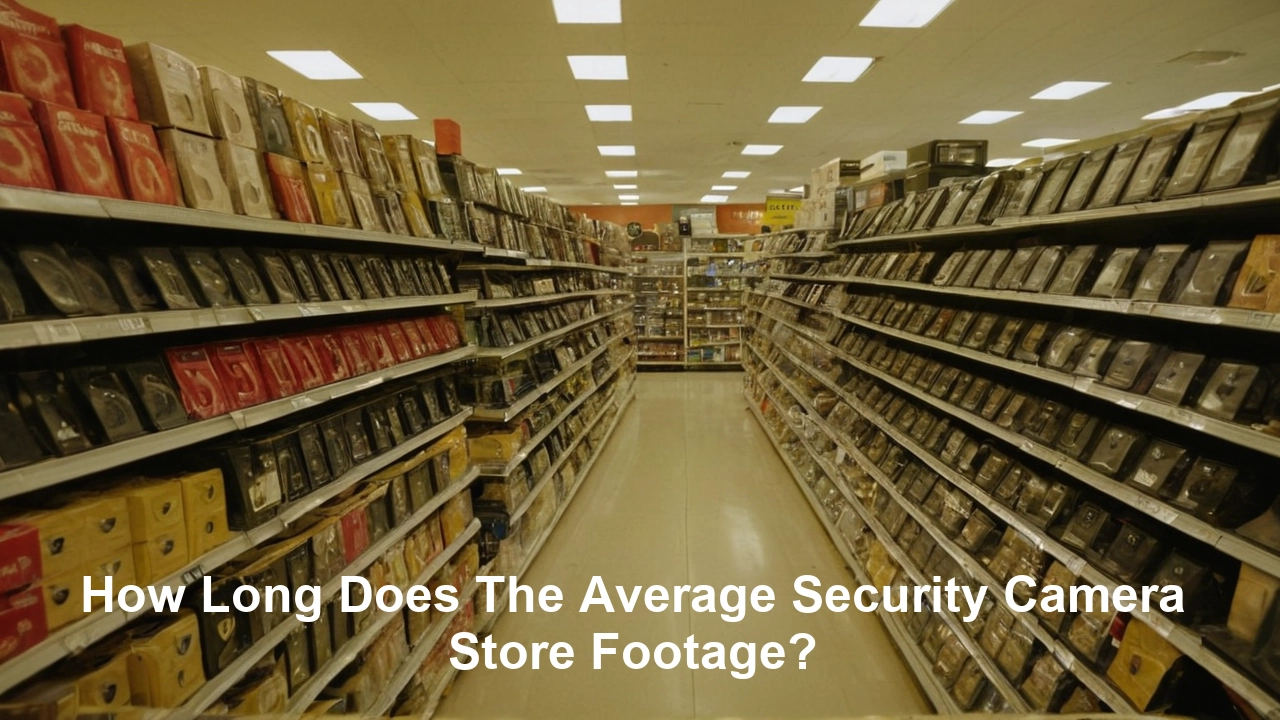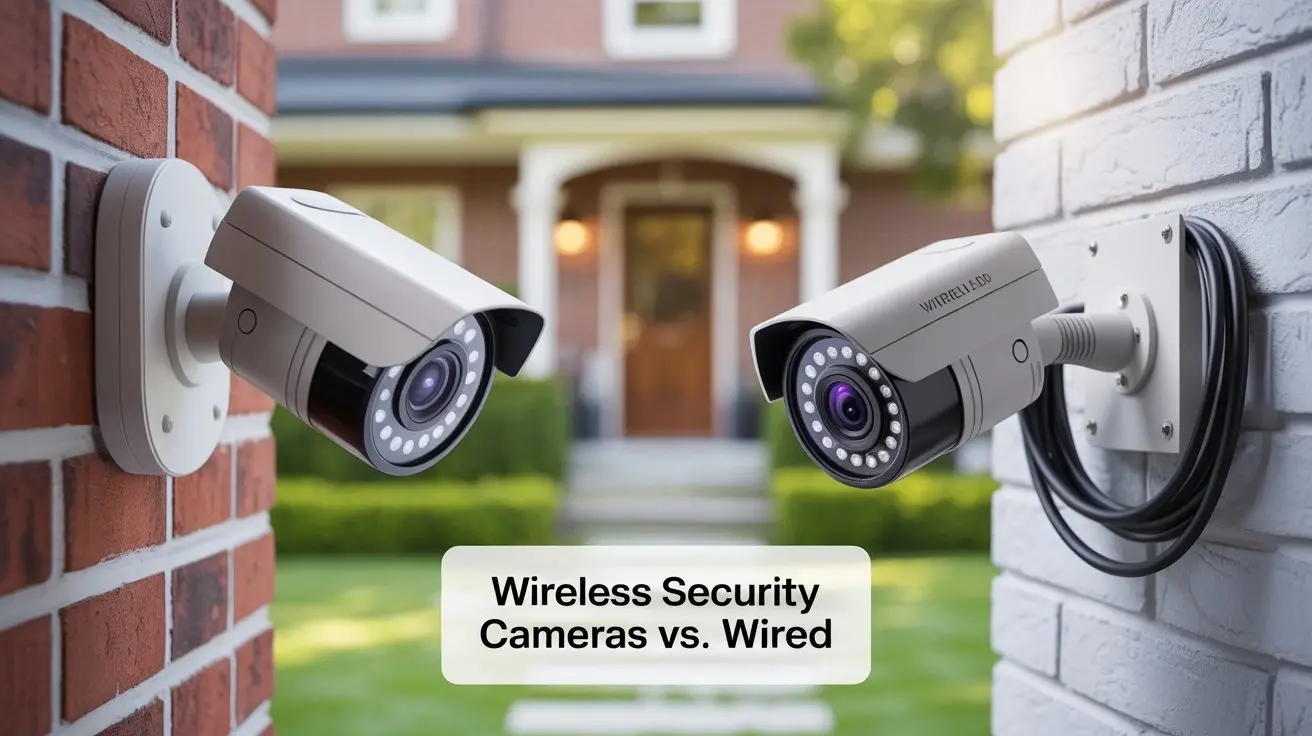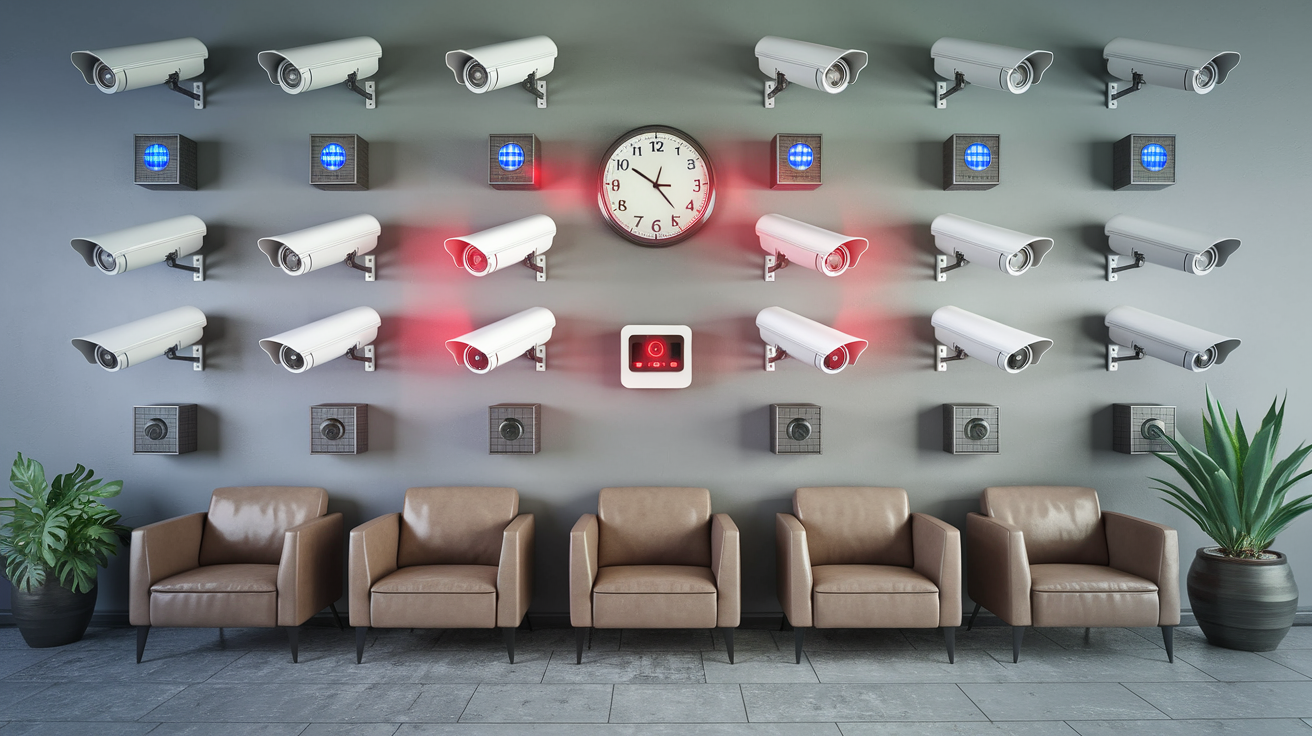Introduction CCTV systems are now present almost everywhere – from homes, offices, schools, and other establishments. In supermarkets, offices, and apartment complexes, cameras monitor our every move as we go through our daily routines. It means that this footage can help businesses and property managers keep an eye on the activities and can be useful in case of an incident. But how long does this footage remain in the device before it is overwritten? Now, let us turn our attention to some of the aspects that define average security camera video retention periods.
A comparison between on-board storage and cloud storage Another factor determining how much video from security cameras is retained is whether or not the video footage is stored on the device or uploaded to an offsite cloud. On-board storage, which means storage in the cameras or the digital video recorder that the cameras are connected to, has more restricted capability. Recorded high definition video files are large and therefore the storage on board may only be capable of recording 24 hours to a couple of weeks’ worth of data with data older being overwritten by newer recordings. Cloud storage, however, gives close to infinite flexibility when it comes to storing security footage. Videos are recorded and get uploaded to distant remote data centers where weeks, months or years worth of surveillance data can be viewed at will.
Camera Resolution It has been observed that a high quality and high resolution of security cameras directly impacts on storage requirements and retention times. Cameras with lower resolutions which record poor quality images or at a lower frame rate consume significantly less digital storage than high definition, 4K cameras. Although the ultra sharp imagery of today’s 4K cameras is more suitable for people and objects recognition than the older systems, 1 minute of the video occupies much more gigabytes of hard drives or cloud storage. High resolution also means that the storage space for video recording quickly becomes full, and it is not uncommon to have real-world retention times measured in days before the footage is overwritten by newer recordings. Lower resolution cameras therefore, enable storage of recorded images for much longer periods.
Location and Purpose The reasons why security cameras are installed and the areas that they are used to monitor also affect the capacity of storage needed. Cameras observing the store shelves or the corner of the parking garage might be asked to retain the recordings for a week or two before the information recorded becomes outdated. Cameras that cover doors and entryways may need to retain data for more than 30 days due to liability windows. Areas that require recording, such as city centers which require such records for legal and security purposes, retain footage for 60 days or more. And gaming industry security systems are also required to retain recordings for at least 7 years because of legal requirements. The intended purpose as well as the usability lifespan of the video data determines how long it is to be stored.
Data Storage Costs But in most cases, one of the most significant constraints that can be used to identify the number of days that a video recording should retain is the amount of money that a business or property manager is willing to spend on storage space. Storing weeks or months of high definition security camera footage entail huge cloud or on premise storage, meaning high monthly or yearly costs for most small and midsize operations. Though it is technologically feasible to retain security video for indefinite amount of time today’s cloud platforms that scale infinitely, most users downgrade their video quality settings or delete files more frequently due to rising cloud storage costs. It means that retention policies are decided based on the terabytes of data that are collected and costs which are associated with continued access to that video.
Industry Averages Considering all these factors and constraints, several professionals in the industries presume that the retention period of security camera footage roughly ranges between 10-30 days for most systems. Advanced, detailed 4K camera systems with numerous features can be more likely to hover around the 2-3 weeks retention mark on average. Standard definition feeds from the analog CCTV recorders are usually refreshed for about 3- 4 weeks before they are recorded over. While the most sophisticated systems with high levels of compression and cloud storage may store certain camera recordings for an average of 60-90 days. In some cases, mandated legal compliance needs can take retention times even further. However, when it comes to more traditional commercial and home CCTV and security cameras, anticipate total retention durations to be no more than one month.
Maximizing Usefulness Within Limits In conclusion, video surveillance should be employed with clear objectives of providing tangible footage to aid investigations and/or to mitigate certain dangers. Always storing and preserving extremely large amounts of footage only results in more security risks than benefits if the data is not being used. Carefully select the camera resolution, frame rates and retention times that in practical scenarios make sense, and spend money on them rather than trying to be overkill just to look cool. That may mean having only the exterior entry cameras at high capacity 30 days recording while most of the interior view record only up to 72 hours. Establish differential data storage policies that would correlate the storage with organizational business processes other than just collecting clips. And harness new intelligent analytics that capture intelligence so as to attain security goals while you do not need to collect video eternally.
The usable storage time of security cameras can vary from days to months depending on factors such as resolution, specific goals, the cost of storage and many more. By optimising these components, retention periods between two weeks and 30 days will be enough to support the incident investigation while minimising the expenses linked to data accumulation. With progressing advancement in technology, there will be more elongated durations that will cost less in terms of storage. However, in today’s business world, organizations must design their video surveillance based on the current constraints and real requirements. When it comes to security camera data retention, it is smart to continue following these strategies because these systems can effectively fulfill their risk mitigation roles for the long-term while remaining affordable.







